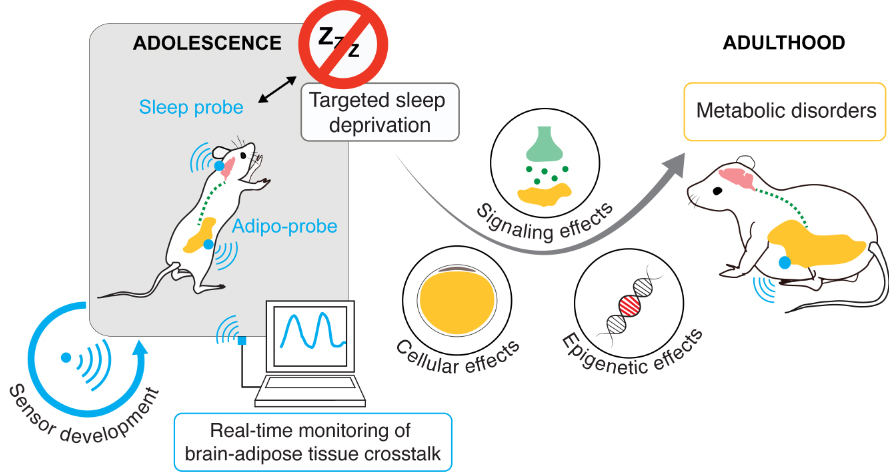The project, SmartSense, proposes to investigate, in a mouse model, how adolescence sleep deprivation elicits long-term metabolic imbalance, by deciphering molecular mechanisms of the brain-adipose tissue crosstalk.
SmartSense is coordinated by Philippe Collas, Professor and head of the Stem Cell Epigenetics Group at the Institute of Basic Medical Sciences, Faculty of Medicine. The consortium includes as principal investigators Dr. Nolwenn Briand, Project Leader at IMB and expert in adipose tissue biology, Charlotte Boccara, Project Leader at IMB, expert in the neurophysiology of sleep, and Ørjan Martinsen, Professor in electronics and head of the Oslo Bioimpedance and Medical Technology Group at the Physics Institute, Faculty of Mathematics and Natural Sciences.
Obesity and bad sleep habits among teenagers are two rising and intertwined health concerns. Studies trace obesity to poor sleep hygiene: this is concerning because adolescents get less and less sleep as screens invade their bedroom, and obese children have a strong risk to later develop cardiometabolic diseases such as hypertension and diabetes. Yet, we still do not know why sleep is important for metabolic health. We will develop mouse models and new “smart” sensors to wirelessly monitor brain-fat tissue communication in real-time. With such breakthrough techniques, we will study how sleep deprivation during adolescence affects fat tissue development and the emergence of metabolic disorders later in life. One of our core hypotheses is that this long-term effect is written on top of our DNA during adolescence and remains for the rest of our life, as an epigenetic memory. Our ambition is to understand whether sleep would be a new therapeutic target for prevention and treatment of obesity and other metabolic disorders.

